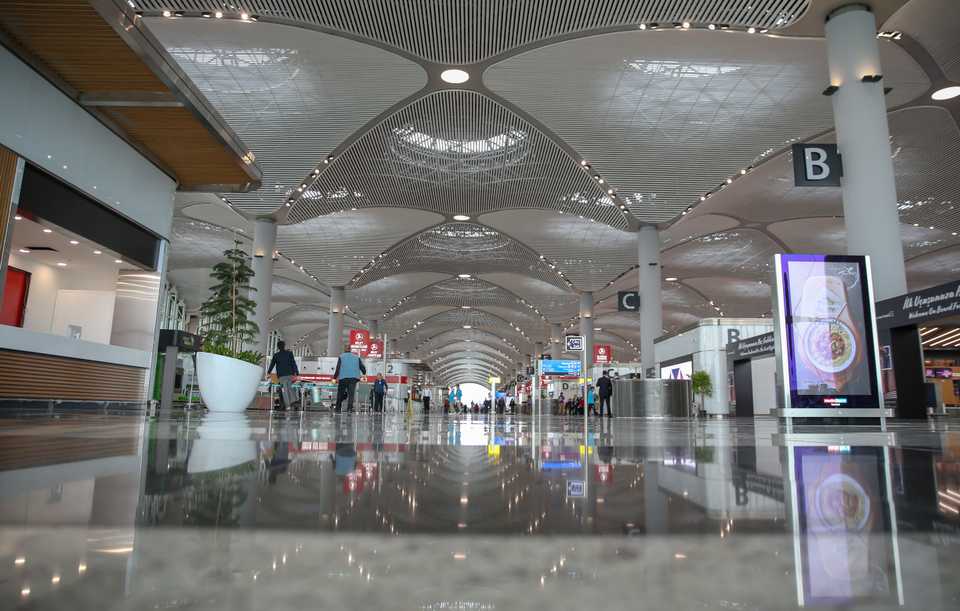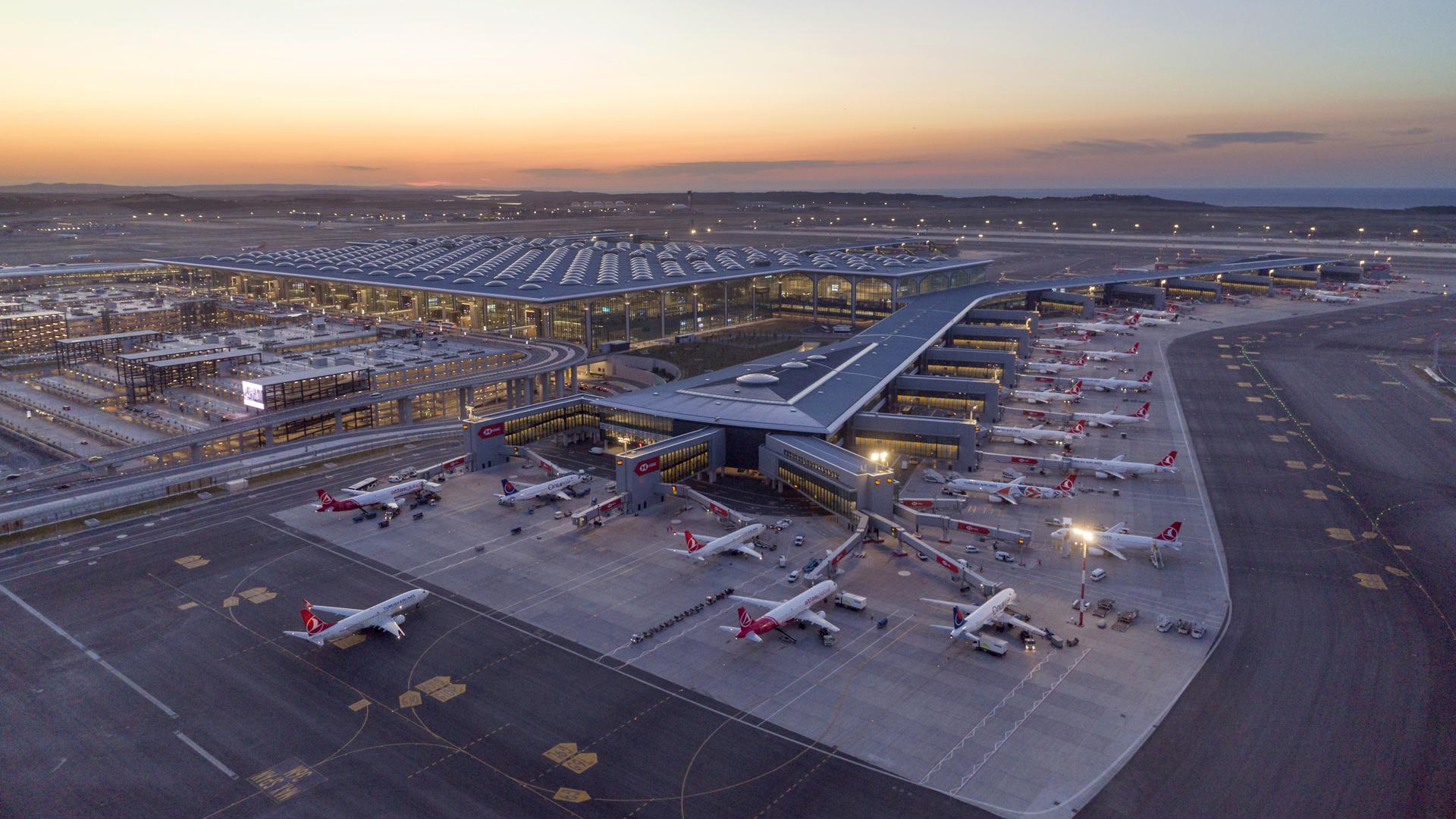Turkey’s Transport and Infrastructure minister Cahit Turan has said Istanbul Airport hosted more than 40 million air passengers since its opening earlier this year.
A total of 252,795 flights (63,856 domestic and 188,939 international) have taken off and landed at the airport, Turhan said.
Turan added that the construction of a third parallel runway covering 76.5 million square metres on the Black Sea coast of Yenikoy and Akpinar will be completed shortly.
The airport, whose first stage officially opened in October 2018, took over heavy air traffic from the former main Ataturk Airport on April 6.
At full capacity, the airport will serve more than 200 million passengers per year after the completion of all four phases with six runways by 2028.
The airport is set to be a major transfer hub between Europe and the Middle East and its extra runways give an operational advantage over competitors.
It is set to become a global aviation hub hosting more than 100 airlines and flights to over 300 destinations around the world.
Crossroads of the east and west
Nearly one billion people from Ireland to India can reach Turkey in around four hours. Turkey’s national flag carrier served 56.4 million passengers in January-September this year.
Turkish Airlines, founded in 1933, flies to more than 300 destinations in over 120 countries with its fleet of 335 aircraft, including passenger and cargo planes.
Last year, the company carried 75.2 million passengers with a seat occupancy rate of 82 percent, and this year aims to reach 80 million passengers on domestic and international routes.
The Istanbul Airport came into service at the end of October and is expected to boost the aviation sector’s growth by 27.5 percent in the next three years.
It will provide more than $30.65 billion of revenue to the government annually.

One of the world’s largest and most modern airports
With the remaining phases to be completed by 2028, the airport will sport six separate runways with a capacity of 500 aircraft and an annual capacity of more than 200 million passengers.
Spread over an area of more than 76 million square metres, the first phase of the airport can serve 90 million passengers annually.
It is also home to the world’s largest duty-free shopping complex. The 53,000 square-metre complex was built at a cost of $141 million (€120 million) and will consist of six sections, including luxury stores and bazaar concepts.
The third airport in Istanbul will also be the world’s biggest project built from scratch upon completion.
It also uses mobile applications and artificial intelligence for customers, is energy efficient and boasts a high-tech security system.
Part of Vision 2023
The $7.2 billion first stage of Istanbul’s new airport, which was built in nearly three years through a public-private partnership model, is among a set of mega projects planned as part of a series of objectives for Turkey’s 2023 centennial.
President Erdogan in 2015 said: “With the completion of all phases of this project, Turkey, especially Istanbul, will become a global center in the world’s air traffic.”
In Turkey, several mega projects were also completed including the world’s longest suspension rail bridge Yavuz Sultan Selim, the world’s largest suspension bridge Osmangazi, the 13.6km (8.45-mile) Marmaray Tunnel and Eurasia, the first road tunnel constructed underneath the Bosphorus seabed.
Meanwhile, the country has carried out other major projects such as the Canakkale 1915 Bridge, which will become the world’s longest suspension bridge.










Discussion about this post